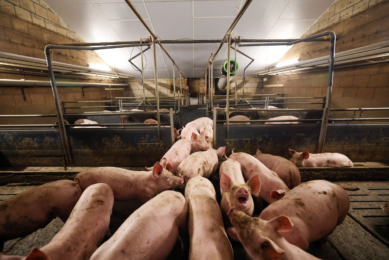Thailand sources feed ingredients next door
Thai companies are being encouraged to invest more in producing grains for the animal-feed industry in neighbouring countries where they can benefit from a regional co-operation programme.
Rising prices for fuel and raw materials used in the feed industry have
driven feed producers to adjust business strategies and to source lower-cost
grains close to home. Also freight charges for shipping grains are placing more
pressure on food prices. Shippers paid US$110 per tonne of soybean meal shipped
from Latin American countries last year, up from about $35 in 2006.
Burma, Cambodia and Laos offer opportunities to grow maize and soybeans
at lower cost under a special Economic Co-operation Strategy (Acmecs).
Agricultural businesses increasingly are competing for grain supplies with
industrial businesses that want to produce ethanol, which is in heavy demand as
the use of gasohol expands.
Maize prices averaged 8.18 baht (€ 0.18) a
kilogramme in the last quarter of 2007, up 51% up from an average of 5.41 baht
(€ 0.12) in the first quarter. Soybean meal increased 40% during the same period
to more than 16 baht (€ 0.37) a kilogramme from about 11 baht (€
0.25).
An industry spokesman said a number of Thai companies were taking
advantage of the Acmecs programme, but there was still much room for expansion
as only 160,000 ha have been used in Burma for growing maize. Pornsil
Patchrintanakul, president of the Thai Feedmillers Association, has frequently
urged the government to speed up plans to expand plantations in neighbouring
countries and double the area, or allow planting of genetically modified maize
in Thailand to ease a possible shortage of the grain.
Each year, Thailand
imports about 100,000 tonnes of maize under the Acmecs contract farming scheme,
mainly from Laos and Cambodia.











